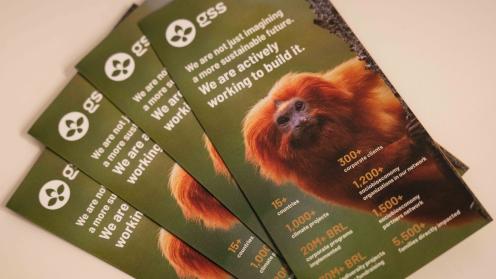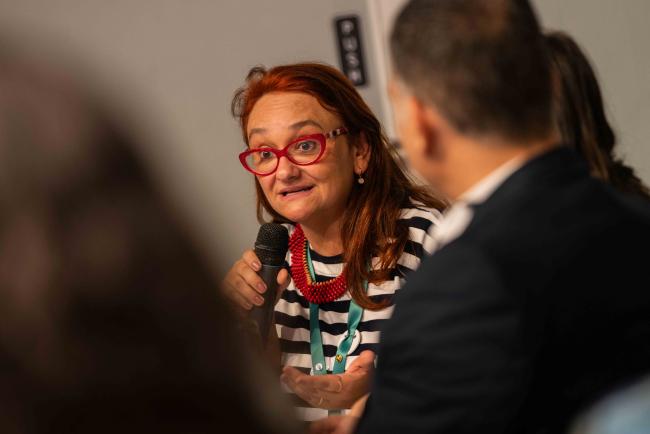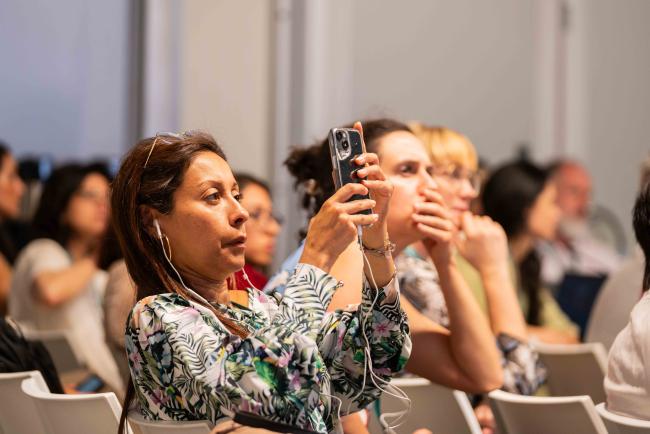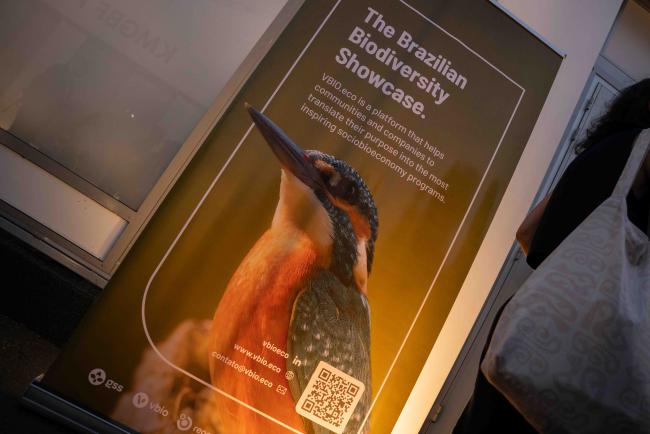About
Access and benefit sharing (ABS) of genetic resources and associated traditional knowledge benefits from an exchange of experiences, challenges, and information. This event highlighted the contribution of the Brogota Project in helping stakeholders understand and compare relevant legislations around the world.
In 2016, the Brogota Project set out to examine and compare laws and legislation around the world related to ABS to the fair and equitable sharing of benefits arising from the utilization of genetic resources, as outlined under the Nagoya Protocol on Access to Genetic Resources and the Fair and Equitable Sharing of Benefits. The Brogota Project, an online platform for ABS rules worldwide, was created to facilitate access to this information. It is now in its fourth edition and was the focus of the event.
Francine Leal, GSS (an impact development company), opened the event by inviting attendees to examine the progress made over the last eight years. She said local legislation and standards on ABS should be aligned, and that the Brogota platform is a tool which all users – including businesses, academia, and traditional communities – can use to compare legislations in different countries.
Caroline de Baere Grassl, GSS, explained that the Brogota Project began as a desire by GSS, Natura, and other organizations to facilitate and clarify access to genetic resources and associated traditional knowledge, which often transcend national borders. She said the objective of collecting and comparing ABS legislation across the world is to help public and private institutions understand and comply with ABS legal frameworks and the Nagoya Protocol worldwide. The project found that national legislations vary widely. She highlighted that challenges begin with finding national focal points within countries, noting that only 24% of countries surveyed replied to their latest requests for information. She hoped that this event and similar opportunities for engagement will foster more widespread information sharing.
Ana Viana, Natura, spoke about challenges regarding ABS standards, including the difficulty in understanding basic concepts relating to ABS, and the lack of clear rules and guidance for the implementation of standards. She noted that debates and discussions on the definition and rules of users should be opened in order to harmonize and clarify these standards for the Pan-Amazonian countries.
Bianca Antacli, TozziniFreire Advogados, expounded on the legal challenges surrounding ABS standards, stating that knowledge and information sharing will help increase legal clarity around ABS. She noted that even though the understanding of these concepts is diverse, harmonization is possible and companies want to be in compliance.
Henry Novion, Ministry of the Environment, Brazil, outlined the benefits of a platform like SisGen, the Brazilian database for ABS, which treats information itself as a benefit, regardless of whether it brings monetary benefits. He said SisGen helped simplify the authorization of access requests, fostering research and innovation. He also emphasized the importance of legislation harmonization, so users do not pick and choose legislation for accessing genetic resources that exist in multiple countries, and so that Indigenous Peoples and local communities (IPLCs) with less negotiating capacity on one side of the border can benefit equally.
Rafael de Sá Marques, Ministry of Development, Industry and Commerce, Brazil, described in detail his country’s experience in implementing the ABS legislation. He highlighted the relevance of that experience to negotiations on digital sequence information on genetic resources, where Brazil has faced challenges in balancing the interests of users and providers. He argued that legal clarity is critical for access, enforcement, and equitable benefit sharing. His key message was that the burden of benefit-sharing requirements and mechanisms should only come after benefits are consolidated; if a product does not come to market, there are no benefits, and forcing companies and researchers to comply with burdensome legislation before there are any benefits stifles research and innovation.
Mario Cardoso, Confederação Nacional da Indústria (CNI), explained that CNI has been a partner in the Brogota Project since the beginning because they believe only concrete information can build consistent public policy. He shared that the challenge for large companies that have offices in many countries is to navigate and comply with legislation in each country. Cardoso shared that CNI designed a course to increase awareness of Brazilian legislation among stakeholders, including government, academia, IPLCs, and businesses—especially smaller ones—to help them use and benefit from the process
Freddy Mamani, Amazon Cooperation Treaty Organization (OTCA), shared the perspectives of Indigenous Peoples, stating that traditional knowledge is vital in the context of ABS. He referred to the Belém Declaration, which highlights the key role of Indigenous Peoples and local and traditional communities in conserving biodiversity and natural resources in the Amazon region. He also shared that under the OTCA, Indigenous Peoples have the mechanism, forum, and platform to address issues relating to the sustainability of the Amazon, which is also important for the Brogota Platform.
Matthew Dias, CBD Secretariat, lauded the efforts of the Brogota Platform, noting that sharing and exchanging experiences and information is key to implementing ABS under the Nagoya Protocol. He said that the ABS Clearing-House, a key tool for facilitating implementation of the Nagoya Protocol, shares the same goal of making information more understandable in support of ABS. He expressed his hopes that through this platform, legislation is made better for ABS procedures.
The event ended with a video showcasing the Brogota Platform, including how it provides fast and updated access to ABS legislation in 198 countries, and its status as a living platform.
Organizers: GSS, CNI, Natura, Amyris, TozziniFreire Advogados
Contact: Maria Eduarda Pereira, GSS Carbono e Bioinovação mariaeduarda@gss.eco
For more information: https://www.cbd.int/side-events/6484
To receive free coverage of global environmental events delivered to your inbox, subscribe to the ENB Update newsletter.
All ENB photos are free to use with attribution. For the 2024 UN Biodiversity Conference, please use: Photo by IISD/ENB | Mika Schroder


















